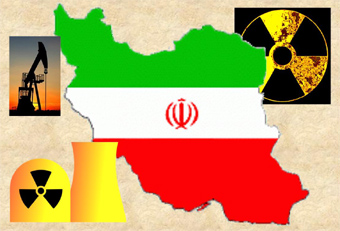
How Solid is Iran Nuclear Deal?
| published April 5, 2015 |
By Thursday Review staff
After ten days of tense, often complex negotiations between the United States, Iran, and five other nations, Iran’s Foreign Minister said this weekend that Tehran reserves the right to independently restart and reboot its nuclear activities if it feels any of the participating countries have violated the spirit of the agreement—meaning the complete relaxation and lifting of sanctions.
In other words, Tehran can unilaterally return to building a nuclear weapon at any time if it feels it has been shortchanged by the other participants.
An agreement has not been formally concluded, but the majority of the work has been done and a tentative deadline of June 30 has been set for all parties to meet for the signing.
Iran seeks the unfreezing of bank accounts, cash assets, properties, and investment income worldwide, and also wants to be able to open its markets for regular commercial trade and tourism. More importantly, Tehran wants the sanctions lifted which have effectively barred Iranian oil from reaching much of the world’s markets. Iran is one of the world’s biggest oil producers, but for decades has faced strict limits of how and where it can sell its crude.
Iran’s Foreign Minister, Mohammad Javad Zarif, announced Tehran’s interpretation of the agreement on state TV this weekend, and his remarks show that the Iranian government wants to maintain control of its interpretations of the accord, as well as flexibility if it feels it is being treated unfairly by any of the other participants.
U.S. Secretary of State John Kerry has been meeting more-or-less continuously in Switzerland with negotiators from six other countries to forge a deal whereby Iran would give up its nuclear weapons program in exchange for a nullification of all United Nations Security Council resolutions and the relaxation of all U.S. and E.U.-imposed economic sanctions.
Economic sanctions and a de facto marketplace embargo against Iran has, for decades, kept Iran’s economy stagnant and suffering. Tehran wants most of all to be able to get its oil to market. The United States and scores of other countries want Iran’s program of nuclear weapon development halted. Israel, especially, has concerns about an Iran with the capacity to launch a nuclear strike.
Zarif told Iranian TV audiences that his main concern was for Kerry’s use of the phrase “suspension of sanctions,” which Tehran says gives the other powers too much latitude to reapply economic restraints at any time. Zarif says he prefers that Kerry and other negotiators use the phrase “terminate all sanctions,” not “suspended,” which Zarif says Tehran views as a license to keep Iran over a barrel.
U.S. President Barack Obama said this weekend that he supports the efforts of the negotiators, and says that the deal will be best for all parties involved.
“International inspectors,” the President said, “will have unprecedented access to Iran’s nuclear program because Iran will face more inspections than any other country in the world. If Iran cheats, the world will know it.”
But Israeli Prime Minister Benjamin Netanyahu says that the United States and its negotiating partners are preparing to finalize a deal which does not go far enough to halt Iran’s nuclear program nor to quash its ambition to be a regional military power. Netanyahu spent much of Sunday morning in the U.S. making appearances on the political and international public affairs shows. He told CNN that the “deal will both threaten us [Israel] and threaten our neighbors.” Netanyahu amplified his position later on NBC’s Meet the Press, saying that the current package will allow Iran to retain too much of its weapons program in place, and will give too much latitude to Tehran to maintain its nuclear infrastructure.
Netanyahu said that, for the near future, sanctions should be tightened even more to compel Iran to let go of any of its nuclear weapons ambitions. The Prime Minister also said that Iran has a long track record of cheating on the inspection process.
Republicans in the U.S. worry that the comments by Zarif over the weekend confirm their suspicions that Iran is already seeking ways to circumvent both the letter and the spirit of the accord. GOP lawmakers in Congress are threatening to kill the deal, which they consider risky for the security of both the U.S. and its allies and partners in the Middle East.
Though the broad strokes are in place, negotiations over the fine print will now continue until June. The agreement is tentatively scheduled to be signed by all parties on June 30 of this year.
Related Thursday Review articles:
Yemen’s Violence Increase; Thursday Review staff; Thursday Review; March 30, 2015.
Yemen’s Collapse; R. Alan Clanton; Thursday Review; March 28, 2015.
